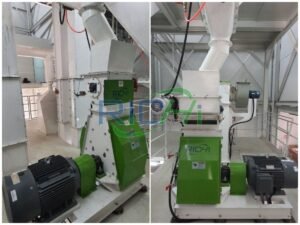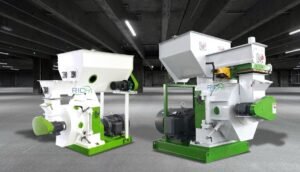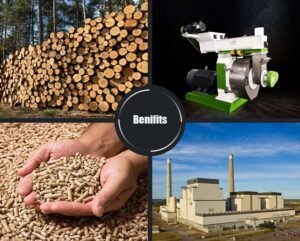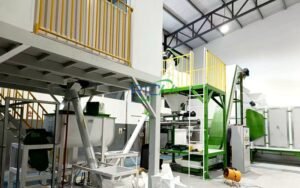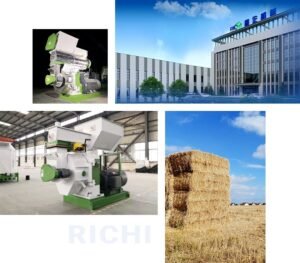
Biomass pellet mills are a crucial component in the production of renewable energy from biomass materials. They are used to convert raw biomass materials into high-quality pellets that can be used for heating and electricity generation. However, the cost of a biomass pellet mill can vary widely depending on a variety of factors. In this article, we will discuss the factors that influence the cost of a biomass pellet mill.

Production Capacity:
The production capacity of a biomass pellet mill is a key factor in determining its cost. Generally, mills with higher production capacities are more expensive than those with lower capacities. This is because mills with higher production capacities require more robust and complex machinery, as well as larger production facilities. The cost of a biomass pellet mill may also increase if the mill is designed to produce multiple types of biomass pellets, as this will require additional equipment and processing capabilities.
Related post: biomass pellet production line
Pellet Quality:
The quality of the pellets produced by a biomass pellet mill can also influence its cost. Mills that produce high-quality pellets may be more expensive than those that produce lower-quality pellets. High-quality pellets are in high demand, particularly in the residential heating and commercial electricity generation markets, and therefore may command a higher price.
Automation and Controls:
The level of automation and controls in a biomass pellet mill can also affect its cost. Automated mills with advanced controls and monitoring systems are generally more expensive than manual or semi-automatic mills. These systems can help improve production efficiency and consistency, as well as reduce labor costs over time.
Durability and Reliability:
The durability and reliability of a biomass pellet mill are also factors that can impact its cost. Mills with higher levels of durability and reliability are generally more expensive than those with lower levels. However, a more durable and reliable mill may be more cost-effective in the long run, as it will require less maintenance and repairs over time.

Related post: https://www.richipelletmachine.com/biomass-pellet-production-line/
Size and Weight:
The size and weight of a biomass pellet mill can also influence its cost. Larger mills with higher production capacities are generally more expensive than smaller mills. However, the cost of transportation and installation of a larger mill may also be higher, particularly if the mill is being shipped from another country or continent.
Brand and Manufacturer:
The brand and manufacturer of a biomass pellet mill can also impact its cost. Well-known and established brands may command a higher price than lesser-known brands or new entrants to the market. Additionally, mills manufactured in developed countries may be more expensive than those manufactured in developing countries, due to differences in labor costs, technology, and quality control standards.
Availability of Spare Parts:
The availability of spare parts for a biomass pellet mill can also influence its cost. Mills with readily available spare parts and a reliable supply chain may be more expensive than those without. However, mills without a reliable supply chain for spare parts may be more expensive in the long run, as downtime caused by the unavailability of spare parts can result in lost revenue and productivity.
Installation and Maintenance Costs:
The installation and maintenance costs of a biomass pellet mill are also factors that can impact its cost. Mills that require more complex installation procedures or frequent maintenance may be more expensive than those with simpler installation and maintenance requirements. Additionally, mills that require specialized maintenance or repair technicians may be more expensive to operate over time.
In conclusion, the cost of a biomass pellet mill can vary widely depending on a variety of factors. These factors include the production capacity, pellet quality, automation and controls, durability and reliability, size and weight, brand and manufacturer, availability of spare parts, and installation and maintenance costs. When considering the cost of a biomass pellet mill, it is important to balance upfront costs with long-term operating costs and choose a mill that meets your production goals and requirements while maximizing efficiency and productivity.
For details please contact: pellet machine
WhatsApp:86 138 3838 9622
Email:enquiry@richipelletmachine.com
